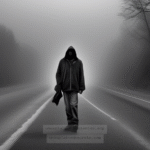Can Psychic Abilities Be Scientifically Measured and Validated?
Can Psychic Abilities Be Scientifically Measured and Validated?
The allure of psychic abilities has captivated humanity for centuries, raising questions about the very nature of consciousness and perception. Are these abilities real, or mere figments of imagination? Can they be tested and validated through scientific methods? In this post, we will delve into the phenomenon of psychic abilities, examining historical accounts, contemporary studies, and the ongoing debate surrounding their validity. By exploring documented cases and scientific inquiries, we’ll uncover the layers of this enigmatic topic.
Historical Context of Psychic Phenomena
Psychic phenomena, often referred to as extrasensory perception (ESP), have roots in various cultures throughout history. Ancient civilizations, such as the Greeks and Egyptians, frequently documented accounts of individuals possessing extraordinary abilities, including prophecy and telepathy. The 19th century saw a resurgence of interest in psychic phenomena with the rise of spiritualism, where mediums claimed to communicate with the dead. The establishment of organizations like the Society for Psychical Research in 1882 marked a pivotal moment in the scientific investigation of these claims, aiming to explore the validity of psychic phenomena through empirical methods.
Core Concepts and Theories Surrounding Psychic Abilities
At the heart of the discussion on psychic abilities lies a variety of theories attempting to explain how these phenomena might occur. Key concepts include:
- Telepathy: The ability to transmit thoughts and emotions between individuals without the use of known senses.
- Clairvoyance: The purported ability to gain information about an object, person, or event without using the usual senses.
- Precognition: The claimed ability to see or predict future events before they occur.
- Psychometry: The ability to obtain information about a person or object through physical contact.
Despite these classifications, the scientific community remains skeptical. Critics argue that anecdotal evidence and personal testimonies lack the rigor required for scientific validation. Yet, proponents maintain that psychic phenomena represent an unexplained facet of human experience, potentially linked to quantum mechanics or undiscovered aspects of consciousness.
Scientific Investigations: Documented Studies
Various studies have attempted to measure psychic abilities under controlled conditions. One of the most notable is the Ganzfeld experiment, designed to test telepathy. In this study, a “sender” attempts to transmit information to a “receiver” in a sensory-reduced environment, with results suggesting higher than chance success rates in some cases. However, the findings have been met with criticism regarding methodological flaws and replication issues.
| Study | Type of ESP Tested | Findings |
|---|---|---|
| Ganzfeld Experiment | Telepathy | Some evidence supporting higher than chance success rates |
| Sheldrake’s Dog Study | Telepathy | Results indicated dogs may sense their owners’ return |
| PEAR Lab Studies | Psychokinesis | Statistical anomalies in random event generators |
Although these studies provide intriguing insights, they often face scrutiny for lacking reproducibility. Critics emphasize the importance of rigorous experimental design, suggesting that many of the findings could be attributed to chance, bias, or methodological flaws.
Contemporary Examples of Reported Psychic Phenomena
Throughout the years, numerous individuals have claimed to possess psychic abilities. One of the most famous examples is James Van Praagh, a medium known for communicating with spirits and providing messages to bereaved individuals. His televised demonstrations have drawn large audiences, sparking both fascination and skepticism.
Another notable case is that of Doreen Virtue, who claims to have the ability to communicate with angels and spirit guides. Her books and workshops have gained a following, yet they have also faced criticism for lacking scientific backing. These examples highlight the dichotomy between personal belief and empirical evidence in the realm of psychic abilities.
Practical Implications and Evidence in Daily Life
For many, the belief in psychic abilities manifests in various ways, influencing decision-making, relationships, and personal well-being. Some individuals report experiencing intuitive feelings or “gut instincts,” which they attribute to psychic perception. This phenomenon may serve as a psychological tool, providing comfort or guidance in uncertain situations.
In therapy and self-help circles, the exploration of intuition is often encouraged. Techniques such as meditation and mindfulness aim to enhance one’s connection to their inner self, potentially leading to heightened intuitive insights. However, the line between intuition and psychic ability remains blurred, complicating efforts to draw definitive conclusions.
Alternative Perspectives: Skepticism and Debunking
While many hold steadfast beliefs in psychic abilities, a significant portion of the scientific community remains skeptical. Critics argue that anecdotal evidence fails to meet the standards of scientific scrutiny. They point to psychological explanations, such as confirmation bias and the placebo effect, as factors that may lead individuals to perceive psychic success where none exists.
Furthermore, investigations into fraudulent practices in the psychic industry have led to calls for increased skepticism. High-profile cases of deception, such as those involving fake mediums and psychics, have contributed to a broader discourse on the ethics of claiming psychic abilities without evidence.
Common Misconceptions and Clarifications
Several misconceptions about psychic abilities persist, often stemming from sensationalized media portrayals and anecdotal stories. Some of these include:
- All Psychics Are Accurate: Not every individual claiming psychic abilities is consistently accurate. Many may have occasional hits, but false claims are common.
- Psychic Abilities Can Be Turned On and Off at Will: Many claim that psychic abilities are not easily controlled and may require specific conditions to manifest.
- Psychics Can Predict the Future with Certainty: While some claim to have precognitive abilities, forecasts are often vague and open to interpretation.
Understanding these misconceptions can help individuals approach the topic with a more informed perspective, balancing open-mindedness with skepticism.
Best Practices for Investigating Psychic Claims
For those interested in exploring psychic claims, whether personally or academically, adopting a careful and structured approach is essential. Here are some best practices:
- Maintain an Open Mind: Approach psychic claims without preconceived notions, allowing for a genuine exploration of experiences.
- Seek Empirical Evidence: Look for well-documented studies and credible sources when evaluating psychic phenomena.
- Document Personal Experiences: Keep a journal of any psychic experiences or intuitions, noting details and outcomes to identify patterns.
- Engage with Skeptics: Participate in discussions with skeptics to gain a balanced perspective and challenge personal beliefs.
Future Developments and Ongoing Research
As the conversation around psychic abilities continues, the landscape is evolving with advancements in technology and research methodologies. New studies are emerging, focusing on neurobiology and psychology to understand the mechanisms behind intuition and perceived psychic experiences. Areas such as quantum physics are also being explored for potential connections to consciousness and psychic phenomena.
Additionally, the rise of online platforms and social media has allowed for broader discussions about psychic abilities, enabling individuals to share experiences and findings across geographical boundaries. Future research may focus on developing standardized tests for psychic phenomena, contributing to a more robust understanding of this complex topic.
Conclusion: The Unresolved Mystery of Psychic Abilities
The question of whether psychic abilities can be scientifically measured and validated remains an open and intriguing mystery. Historical accounts, contemporary studies, and personal testimonies provide a rich tapestry of experiences that challenge our understanding of human potential. While skepticism is vital in evaluating claims, the continued exploration of psychic phenomena invites curiosity and open-mindedness. As research progresses and our understanding of consciousness evolves, we may one day uncover the secrets behind these extraordinary abilities. Until then, the debate continues, captivating those who seek to understand the unexplainable.
Other Articles
Recent Posts
- What Happened to Flight MH370? The Conspiracy Theories That Still Haunt Us
- What Secrets Lurk Within the Walls of the Infamous Trans-Allegheny Lunatic Asylum?
- What Evidence Supports the Existence of Bigfoot in the Pacific Northwest?
- What Happened to the Indus Valley Civilization? Unraveling the Mysteries of Ancient Urban Life
- Can Telepathy Be Scientifically Proven Through Laboratory Evidence?







